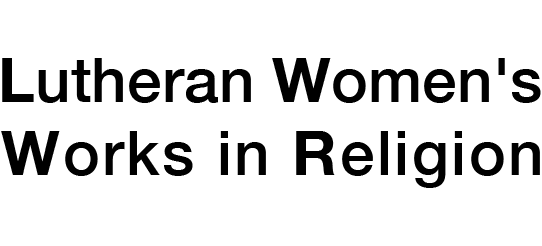Category: Ecclesiology and Ecclesial Life
Ecclesiology and Ecclesial Life filtered by type: Books
Reflections for the church musician on the scriptures designated for the Revised Common Lectionary. Available for all three lectionary cycles. Useful as choir devotionals or for the musician’s personal preparation.
A collaborative writing project of the professors of Christian Education at the then ten Lutheran Seminaries of the Evangelical Lutheran Church in America and the Evangelical Lutheran Church in Canada, this book shows how education and evangelism, often pitted against one another, must go together. To carry out goals of evangelical outreach, education is essential, and education which is alive needs to spring forth in a vital sharing of the Good News.
Each chapter in Blessed to Follow is structured around a similar pattern: appeal to experience; biblical stories; Jesus: the one blessing and the one blessed; disciples: blessed to be a blessing; practice: the blessing made real. Includes questions for discussion and additional resources.
Perspectives on the office of bishop in the global Lutheran church, papers from the Luther Colloquy 2000 at Lutheran Theological Seminary at Gettysburg, PA – editing and epilogue.
This book presents a unique blend of theological reflection on listening, new and tested research on listening as it relates to church leadership, and suggested forms of listening education and skills assessment in a continual effort to locate and understand listening as the heart of effective and faithful ministry.
Moe-Lobeda explores what it means for the ELCA to play a role in public life today. Sections focus on what it means to be a public church, obstacles to being a public church in public life, power for being public church, and providing public leadership. For the followers of Jesus, the ”way of living” in public is a gift of God to the church.
This highly anticipated resource establishes the importance of children’s education to the life of today’s faith communities. A very readable textbook, it presents foundations for education in the faith, explores contexts in which contemporary faith is nurtured, and suggests practical helps for creating programs that work in congregations.
The Reformation concept of the ―Priesthood of all Believers‖ has yet to be fully realized. These Lutheran scholars, a lay man and a clergy woman, provide a Trinitarian approach to the question of ―What in the world is God doing?‖ Using a variety of styles and methods, they help people reflect on and be empowered for ministry in daily life.
Professor Everist invited 25 diverse women engaged in the full range of parish ministry to show how they lead and serve, using the themes of “Trusting God,” “Liberating Christians,” “Living Vocation,” and “Nurturing Community.” The theological questions arise from the contextual realities as the women exercise ministerial leadership in the public world.
The authors, the faculty of Wartburg Theological Seminary, demonstrated the unity of the church in its diversity. A peer among them, Professor Everist encouraged authors in content and process to deepen their differences, not hide them, thus modeling how the church can be the body of Christ in the midst of its greatest challenges. As difficult as it is, we need one another.

